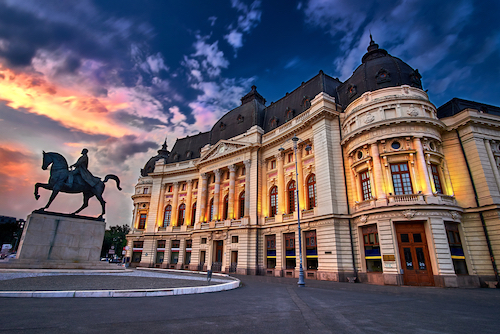Romania is an intriguing option for expats seeking work in Eastern Europe: it might not be your first choice but it is definitely worth considering, as the country is the new home to some big multinationals, has a relatively low cost of living, and a currently low rate of unemployment which suggests that the economy is reasonably healthy. It is particularly worth exploring the option of Romania if you have a career in IT and like the idea of relocation, either as secondment from your existing company or with a new employer. If you are a citizen of a EU/EEA state, you will be at an especial advantage due to reciprocal employment agreements.The legal requirements for working in Romania will depend on whether you are a citizen of an EU/EEA state or from outside the region. If the former, you will have an advantage in being able to reside in the country and the process of applying for work will be smoother. Citizens of Romania itself and the EU are prioritized by the Romanian government, so if you are a third party national, you/your employer will have to prove that there is no Romanian or EU citizen who is capable of doing the job.
Whether you are an EU member or a third party national, however, you will still need to apply for a work permit.
There are a number of categories into which the Romanian administration can put you:
• permanent worker
• probationer worker
• seasonal worker
• cross-border worker
• skilled worker
• detached worker
• ICT (inter company transfer) worker; if you are being transferred to your existing company’s base in Romania
The General Inspectorate for Immigration will require some documents from you which may differ slightly depending on which category you fall into. As a foreign national you may be employed in a full-time 8 hour day in Romania only by a single employer, whether an individual or a legal entity. Foreign personnel who hold a work permit may be employed by another employer with a part-time contract of up to 4 hours per day.

For a permanent worker, who is a third party national, you will need to apply for a work authorization first, then a visa, known as a Romanian Employment Visa (D/AM). The General Inspectorate for Immigration will require from you/your employer:
• application form
• proof that your employer is legally permitted to hire you
• company’s Certificate of Registration
• company’s Certificate of Attestation
• tax attestation
• employment agency’s certificate
• job description
• job offer
• proof that the company has advertised the vacancy
• copy of the minutes of the selection process (this is also to prove that you are a better choice of candidate than a EU national)
declaration that you are medically fit to work and that you have minimal knowledge of Romanian
• proof of accommodation
• proof of financial support
• CV
• 2 x photos (3cm x 4cm and in which 70% – 80% of the photo features your face and taken on a white background)
• police clearance documentation for both yourself and your employer
• passport
The issuance of your work permit can take up to a month.
If you are an EU citizen, the process is somewhat more streamlined. You/your employer will need to contact the General Inspectorate for Immigration with:
• work contract in original/copy or a certificate issued by the employer (original)
• an application form
• a printed screen from the general registry of employment records (REVISAL), in particular the section concerning information regarding the work contract, stamped and signed by the employer in order to authenticate it
tax receipts
Whether you are an EU citizen or not, you must also sign up with a doctor: this is mandatory.

If you have skills in the IT and digital sectors you will find plenty of opportunities in Romania: many of the big international operators such as Adobe, Amazon and Microsoft have a base here.
A background in telecommunications will also prove to be an advantage: Orange and Vodafone are here, too, and the telecom sector is booming.
The banking sector is also extensive, so if you work in finance, you might want to consider one of the international banks based in the country.
Romania has a 40 hour working week, consisting of 5 8-hour weekdays. Most businesses work from 9 a.m. – 5 p.m.
You will be entitled to a minimum 20 days of paid leave per year. This may be taken in increments if you wish, but some of it must be taken as one unbroken period of at least 15 working days.

If you are pregnant, you will be eligible for 126 days of maternity leave at 85% of your salary during the previous 6 months. Fathers will be entitled to 5 days of paternity leave within the first 8 weeks of the birth.
The minimum wage is currently €446 per month/€5352 per 12 calendar months.
Your spouse will be entitled to work if they are a citizen of a EU member state but if they are a third party national, they will need to apply separately.
Job Vacancies
You should have no problems approaching a company directly.
There are also two main recruitment agencies which cover Romania. Otherwise, you can check online jobs boards or the local press, if you are already on the ground.
Applying For A Job
A one page CV/resume should be fine. You will not need to translate this if you are applying to an international company but it is recommended that you learn some basic Romanian.
Romania has anti-discrimination legislation protecting you from discrimination on account of race, nationality, ethnic origin, language, religion, sex, opinion, political adherence, property or social origin.
Qualifications And Training
You may need to get copies of any qualifications apostilled, but check with your recruitment agency or prospective employer.
Would you like to share your experience of life abroad with other readers? Answer the questions here to be featured in an interview!

